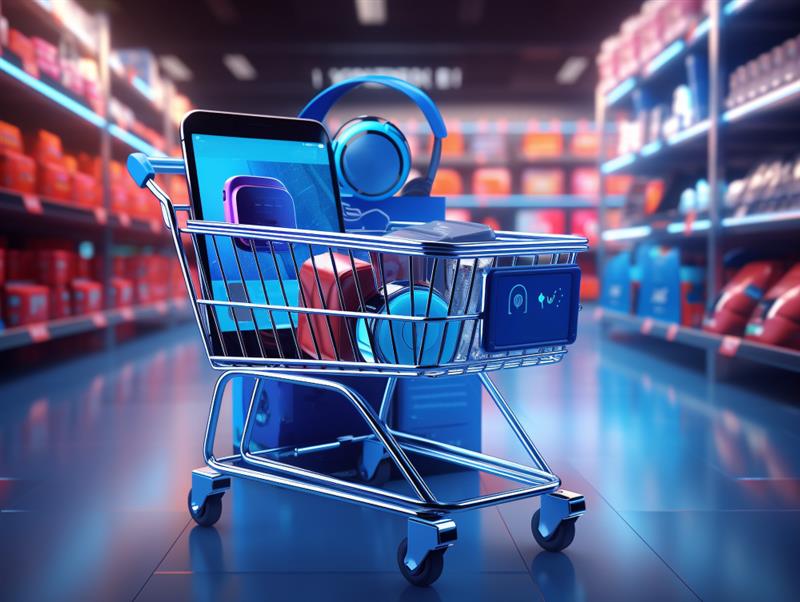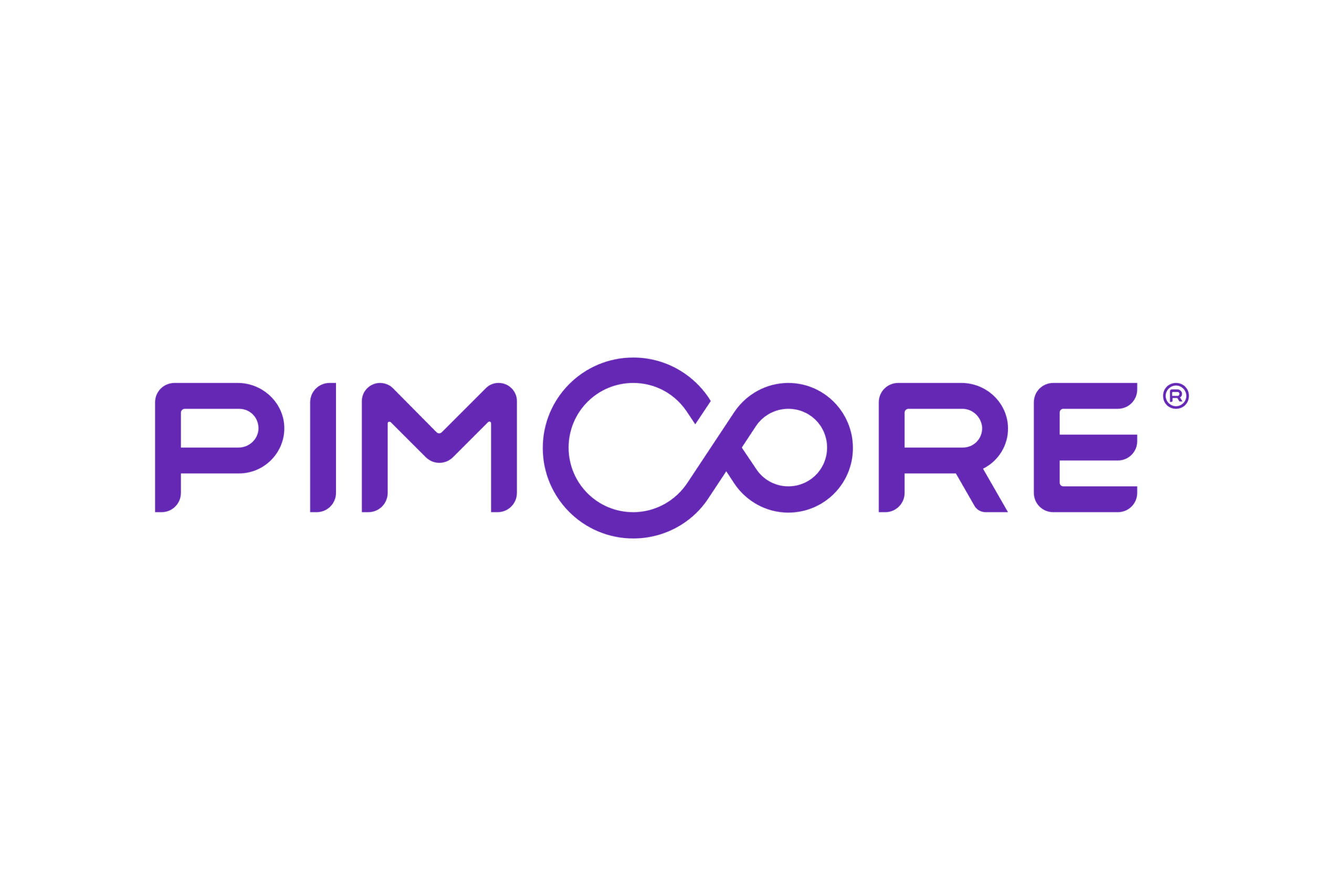
- Automotive & EV▼
- IoT▼
- Digital Solutions▼
- Industries▼
- Technology▼
- Digital Growth Enablers▼
- Commerce & Experience Services▼
- Success Stories▼
- Thought Leadership▼
- Industries
- AI/ML▼
- Company▼
- Careers▼
- Contact Us
- Blog







Ecommerce is known to be a highly competitive domain, where millions of websites vie for consumer attention. In such businesses, the ability to convert visits into purchases remains a daunting challenge.
Based on the data from Statista, the global average ecommerce conversion rate in 2025 ranges between 2.0% and 2.3%. It’s evident that success in ecommerce hinges not just on deployment but also on robust post-deployment ecommerce management strategy.
A seasoned Ecommerce Managed Services provider like Embitel can help you achieve a superlative customer experience. Through 24*7 support and maintenance operations, we will ensure glitch-free functioning and growth of your e-business while you pursue other mission-critical business goals.
Embitel has been empowering numerous small and large-sized business organisations by enabling a 360-degree approach for their ecommerce store management.
Book an Ecommerce Managed Services ConsultationWhat keeps the wheels turning in the world of e-commerce? It's the 4 critical pillars of infrastructure:
But how do businesses ensure these pillars stand strong amidst the complexities of online retail?
This is precisely where our ecommerce managed services come into play, offering a comprehensive range of benefits designed to take your online operations to new heights. As a trusted ecommerce management services provider, Embitel offers:

We partnered with a leading European mobile operator to model products and support various device variants in their telco accelerator. We also helped with order modelling and customised the Order Management System (OMS) to support their ticketing system and complex order processes.

We partnered with Compulndia, for development of a highly scalable ecommerce store with a robust backend to support multiple backend users to avail faster delivery. Additionally, we offered IT infrastructure management, server setup, post-launch monitoring support.
With our dedicated support, clients experienced the lowest turnaround time for going live, making us their trusted one-stop destination for all e-commerce technology needs.

We collaborated with a multi-brand F&B retailer from the Middle-East. As part of the collaboration, we developed an Invite-Only Website and Progressive Web App.
Leveraging Magento Multi-Source Inventory (MSI) as an Omnichannel solution, we facilitated seamless order pickups from multiple storage locations.
Our solution facilitated high product visibility and accurate availability, crucial during the pandemic-induced surge in online orders. With automated order management and scalable infrastructure, the brand could deliver a seamless CX to its customer.

Our customer is an Asian subsidiary of a global consumer goods manufacturer that manages hundreds of brands. They faced a major challenge in supply chain management because Salesmen spent a lot of time physically taking orders from retailers, which limited their ability to focus on account management. Retailers also relied heavily on these visits to place orders.
At Embitel, we developed a Progressive Web App that allowed both Salesmen and retailers to place and manage orders easily on their mobile devices. This solution streamlined the ordering process, integrated with the existing ERP system, and empowered salesmen to focus on more strategic tasks while giving retailers more control over their purchases.
We offer holistic ecommerce management services designed to ensure platform stability, continuous growth, and seamless customer experience. Our 360° support model covers every critical touchpoint across your ecommerce operations.

We deliver tailored support engagement models based on your business priorities.

We offer expert technical assistance through multiple support channels and tools.

We ensure fast recovery and minimal downtime through responsive incident handling.

We define and manage clear service levels to deliver consistent value.

We support long-term success with proactive service planning.

We help you maximise the returns on your ecommerce investment.
| Category | Activity | Standard Support | Enterprise Support | Premium Support |
|---|---|---|---|---|
| Engagement Management | Technical Account Manager – Connect with Project SPOC | NA | Monthly | Fortnightly |
| Steerco Meeting | Quarterly | Quarterly | Monthly | |
| Goals Alignment with Client Sr. Management and Account Manager | Quarterly | Quarterly | Monthly | |
| Driving Release Management Communication and Release Demo | Release Notes | Yes | Yes | |
| Minimum Contract Duration | 6 months | 6 months | 1 Year | |
| Technical Assistance | Support Hours P0 Tickets (Blockers) | 8 × 5 | 24 × 7 | 24 × 7 |
| Email Support | Included | Included | Included | |
| Phone Support | Not Included | Included | Included | |
| Chat Support | Not Included | Included | Included | |
| Online Support Portal Access (Jira/Redmine/Basecamp) | 1 User Login | 2 User Logins | 4 User Logins | |
| Support Model | Shared services | Shared Project Manager | Designated Project Manager + Shared Solution Architect | |
| Customer Business Process Awareness with Knowledge continuity | Not Included | Yes | Yes |
| Category | Activity | Standard Support | Enterprise Support | Premium Support |
|---|---|---|---|---|
| Incident Management | Premium Resources | NA | 1 | As per the agreement |
| Support Hours (Other Severities) | 8 × 5 Embitel Business Hours | 8 × 5 Customer Business Hours | 8 × 5 Customer Business Hours | |
| Active Incident Management | P0 (Blocker) | P0 (Blocker) | P0 & P1 (Blocker & Critical) | |
| Escalation Management | P0 (Blocker) | P0 (Blocker) | P0 & P1 (Blocker & Critical) | |
| Operational Reviews | P0 (Blocker) | P0 (Blocker) with RCA – Fortnightly | P0 & P1 (Blocker & Critical) with RCA for Blocker issues – Weekly | |
| SLA Management | Blocker / P0 | 1 hr / 24 hrs | 30 mins / 4 hrs | 15 mins / 2 hrs |
| Email Support | Included | Included | Included | |
| Critical / P1 | 1 hr / 5 days | 1 hr / 8 hrs | 30 mins / 6 hrs | |
| Minor / P2 | 2 hr / NA | 16 hr / 10 days | 8 hr / 5 days | |
| Improvements / P3 | NA | As per Operational Support Plan | Prioritized delivery as per the Operational Support Plan | |
| Permanent Fix Visibility | NA | With Timeline visibility | With Prioritized timeline delivery | |
| SLA Credits | NA | NA | Critical issue resolution time linked to Availability SLA with Credits |
| Category | Activity | Standard Support | Enterprise Support | Premium Support |
|---|---|---|---|---|
| Service Management | Blocker / P0 | NA | With Timeline visibility | 1 day / prioritized delivery for resolution |
| Critical / P1 | NA | With Timeline visibility | 3 days / prioritized delivery for resolution | |
| Minor / P2 | NA | With Timeline visibility | 10 days / prioritized delivery for resolution | |
| Success Management | Value Outcome Metrics tracking aligned with Business Goals (e.g., Support Cost/Order/Customer, Resolution time for blocker/critical incidents, SLA Compliance, Talent Ramp up/ Ramp down time) | Not Included | Quarterly / Half Yearly | Monthly |
| Review of Customer Journey, Support operations and Digital Infra | Not Included | Quarterly / Half Yearly | Monthly | |
| Maximise User Adoption | Not Included | Proactive, 1 per year | Proactive, 2 per year | |
| Change Request Management | Separate CR process and agreement (Charged separately) | Separate CR process and agreement (Charged separately) | Based on the agreement of the Scope |
| Category | Activity | Standard Support | Enterprise Support | Premium Support |
|---|---|---|---|---|
| Comprehensive Value Realization | UX Study and Feedback | Not Included | Once a year Once a year | |
| SEO Audit | Not Included | 1 per year | 2 per year | |
| Code Review and Feedback | Not Included | Once a year | Twice a year | |
| App Health | Not Included | Once a year | Twice a year | |
| Site Security | Not Included | Reviewed once a year | Reviewed twice a year | |
| Performance Audit | Not Included | Conducted once a year | Conducted twice a year | |
| VCS Review and Define Branching Strategy | Not Included | Once a year | Twice a year | |
| Uptime Monitoring | Not Included | Yes | Yes | |
| Cost | No. of Incidents | Up to 15 tickets / Up to 40 hours | Up to 48 tickets / Up to 140 hours | 100+ Incidents / More than 320 hours |
| Cost Per Month | Contact Sales / Request for Quote | Contact Sales / Request for Quote | Contact Sales / Request for Quote |
| PM Tool Priority | Definition | Examples |
|---|---|---|
| P0 – Blocker |
|
|
| P1 – Critical/Major |
|
|
| P2 – Minor |
|
|
| P3–P4 – Improvements |
|
|
Our Application Enhancement Services (AES) offer flexible engagement models, whether you need steady support or growth-driven innovation.
From continuous development to feature enhancements and automation, we ensure both BAU and business impact are covered.
We offer end-to-end support to keep your digital platforms running smoothly, securely, and ready to grow without any disruption.
Handle small but essential improvements that keep your applications efficient and up to date.
We refine the user experience and backend functionality with minor yet impactful updates.
Keep your platform healthy and high-performing at all times.
Test, release, and scale with confidence.
Stay informed with clear insights into performance and delivered improvements.
Our services are designed to be as efficient as they are effective.
Your digital platforms deserve more than upkeep. We help them grow, evolve, and lead. Our ecommerce management services are designed to drive continuous improvement, faster time-to-market, and measurable business impact.
We continuously refine your product for better performance and user satisfaction.
We help you integrate tools and tactics that accelerate digital growth.
We streamline your systems and processes for speed, scale, and stability.
We turn your data into decisions and automate what matters.
We keep your systems secure, stable, and future-ready.
We focus on growth outcomes, not just tech deliverables.
| Plan Details | Standard | Growth Focused |
|---|---|---|
| Engagement Duration | > 1 month | > 12 months |
| Monthly Hours | 40–100 hours (Scalable on demand) | 160 hours (flexible) |
| Team Composition* | Frontend/Backend Dev, QA, UI/UX (shared), Project Coordinator (shared) | Full-Stack Developer, QA, UI/UX, DevOps, Project Manager, Optional: Data Analyst |
| Billing Model | Fixed monthly fee with rollover (optional) | Fixed monthly fee with Sprints & Reviews |
| Scalability | Cost Effective and Predictable | Ready to Scale team |
| Price | Request for Quote | Request for Quote |












Bolster Your Website for the Holiday Sales Rush: Your Essential Guide to a Glitch-Free Shopping Season
A 360° ecommerce support framework includes end-to-end services like technical support, incident management, platform upgrades, and performance optimisation. At Embitel Technologies, we cover success planning, security management, analytics, and continuous improvement. Our team ensures your digital commerce platform runs smoothly, securely, and scales with your business goals.
Incident management in ecommerce support refers to the process of identifying, tracking, and resolving issues that affect your user’s shopping experiences such as payment failures, website downtime, or order delays.
It ensures problems are quickly detected through monitoring tools or customer reports. Once flagged, incidents are logged, prioritised based on severity, and assigned to the right tech teams. The goal is to resolve quickly with minimal impact on customers and business operations. Effective incident management also includes root cause analysis to prevent future issues.
At Embitel, we help improve ecommerce platform performance by monitoring uptime, server response, and page load speeds. We fix bugs, manage code efficiency, and use apt tools to ensure smooth site performance. Regular checks and security updates help keep your platform stable, reliable, and secure.
Ecommerce managed services improve customer experience by keeping your website fast, secure, and easy to use across all devices. They ensure smooth navigation, quick page loads, and reliable checkout processes, reducing cart abandonment. With ongoing updates, UX enhancements, and support, these services help deliver a seamless and satisfying shopping journey by boosting customer retention and search visibility.
Our ecommerce managed services team ensure security by regularly applying software updates and security patches to protect against vulnerabilities. They monitor for suspicious activity, perform security audits, and manage firewalls and SSL certificates. This helps to keep customer data safe and prevents breaches, thereby building trust and compliance with industry standards.
An ecommerce management system is a set of integrated tools that helps businesses manage every aspect of their online store including product listings, inventory, order processing, customer relationships and performance analytics.
It serves as the central hub for managing ecommerce operations efficiently and plays a major role in streamlining workflows and supporting business growth at scale.
We offer multi-channel support through chat, email, and ticketing, with tools and dashboards for quick issue resolution.
Ecommerce managed services help drive growth by continuously enhancing site features, optimising user experience, and ensuring platform stability. They also integrate marketing, analytics, and automation tools to boost conversions and streamline operations.
With proactive support and regular performance audits, businesses can scale faster and stay ahead of competition.
Yes, we support multi-country, multi-currency storefronts tailored to your specific market needs.
Our ecommerce managed services team typically provides detailed reports on website performance, including uptime, page load speeds, and error tracking.
They also offer analytics on customer behaviour, sales trends, and conversion rates to help optimize marketing and sales strategies. Regular reports may include security status, incident resolution, and recommendations for improvements.
Ecommerce support services refers to a range of technical, operational, and customer-focused services which ensure that your online store runs smoothly, securely, and efficiently.
These services are designed to help ecommerce businesses maintain platform stability, improve performance, enhance user experience, and adapt to changing customer and market needs.